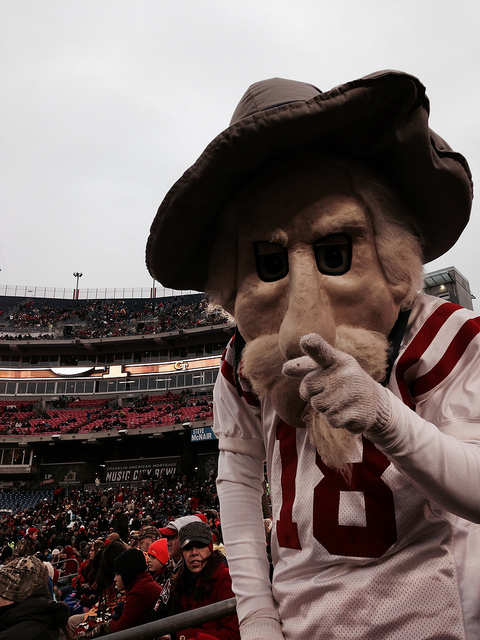Football Star Brilliantly Shut Down a Fan Who Knocked #BlackLivesMatter

By:
Ohio State quarterback Cardale Jones had no patience for a Twitter troll who told Jones to stop talking about #BlackLivesMatter and the Sandra Bland case.
On Thursday morning, Jones retweeted a story about Bland's arrest and mysterious death in a Texas jail cell and made comments about the #BlackLivesMatter movement:
Those tweets did not go over well with an Ohio State fan, known on Twitter as Dan Gustafson, who said in a since-deleted tweet:
@CJ12_ worry about getting us fans another championship..... Stay out of this bullshit. #GoBucks
— DGus1228 (@DanGustafson1) July 23, 2015Jones took on Gustafson, tweeting a satirical response that was applauded instantly.
White fans, Black athletes.
The Jones incident highlights the racial divide in sports that is often not discussed—between white fans and Black athletes. That's not to say that all sports fans in America are white. On the contrary, a significant percentage of sports TV viewers are Black, according to Nielsen's sports media reports. But white fans make up a clear majority of viewers, Nielsen reports, especially in Jones' sport—college football—where 82 percent of the the viewers are white, according to Nielsen.
ESPN's Bomani Jones talked about this divide in college sports last month:
This reality is apparent in the debate over the use of Confederate symbols in American culture. It's not been lost on observers that the University of Mississippi's teams are called the "Rebels" and that the school's nickname, Ole Miss, "is derived from a term slaves used to refer to the wife of a plantation owner," according to al.com. And up until 2010, its mascot was Colonel Reb, which elicited comparisons to a plantation owner and a Confederate solider:
 David Hitt / Flickr - flickr.com
David Hitt / Flickr - flickr.com
Yet, it's Black athletes, who make up the majority of Ole Miss' men's basketball and football teams, wearing uniforms that include these references to the Old South.
Shattering the divide between sports and politics
This is why Black athletes (and Black sports media personalities) might incur pushback on social media when they venture into racial politics. Big Ten Network TV host Taylor Rooks explained the disconnect between fans and Black athletes, tweeting that "people only want to hear about [Jones'] experience as an athlete, not his experience as a black man."
The resistance to athletes talking about politics is so widespread that it even has its own hashtag, dubbed #sticktosports. But as racial politics have been at the forefront of the national discussion, we've more frequently seen white sports fans exposed to commentary about race in America by their favorite athletes. Last fall, many NBA and NFL stars wore "I Can't Breathe" shirts in tribute to Eric Garner, a Black man killed by police officers in New York.
But this exposure does not only elicit hate, as much of the reaction to Jones' tweet proved on Thursday. He received praise from sports fans of all races, including at least one fan of the University of Michigan, Ohio State's notoriously hated rival:
